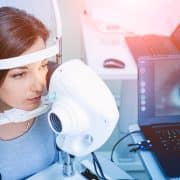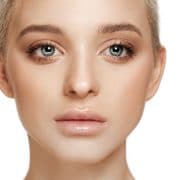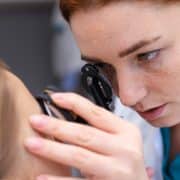Why It’s Worth Building a Relationship with One Eye Doctor
When it comes to eye care, consistency matters more than you might think. You may think it’s fine to skip, willy nilly, between eye doctors, but there’s a world of benefits to sticking with the same trusted person to care for your eyesight. Establishing a long-term relationship with one trusted eye doctor can offer real advantages—not just for your vision, but for your overall health and peace of mind.
Personalized Care That Improves Over Time
Seeing the same Jesup, GA optometrist regularly means they get to know you—not just your prescription, but your lifestyle, habits, and health history. That kind of familiarity helps them pick up on subtle changes in your eyes that might go unnoticed by someone seeing you for the first time.
Over time, your eye doctor can tailor their recommendations based on your personal needs, whether that’s managing digital eye strain, planning for age-related vision changes, or tracking chronic conditions like diabetes or high blood pressure that can affect the eyes.
Better Monitoring for Long-Term Eye Health
Your eyes change gradually, and small shifts in vision or eye pressure can be early signs of more serious issues. When you see the same doctor year after year for your eye exam in Jesup, GA, they’re better equipped to recognize what’s normal for you—and what isn’t.
They’ll have a complete record of your eye health and be able to compare past and present results with accuracy. This can make a real difference in detecting conditions like glaucoma, macular degeneration, or retinal problems early.
A Relationship Built on Trust
Visiting the eye doctor can feel routine, but it’s still medical care—and trust matters. When you stick with one provider, it’s easier to ask questions, voice concerns, and feel confident that you’re getting thoughtful, individualized advice.
If a time comes when you do need a procedure, new lenses, or a change in treatment, you’ll already have a doctor who understands your preferences and priorities.
Building a relationship with one eye doctor, such as an optometrist in Jesup, GA, isn’t just convenient—it’s a smart investment in your vision and long-term health. When someone truly knows your eyes, they can help protect them for years to come.






